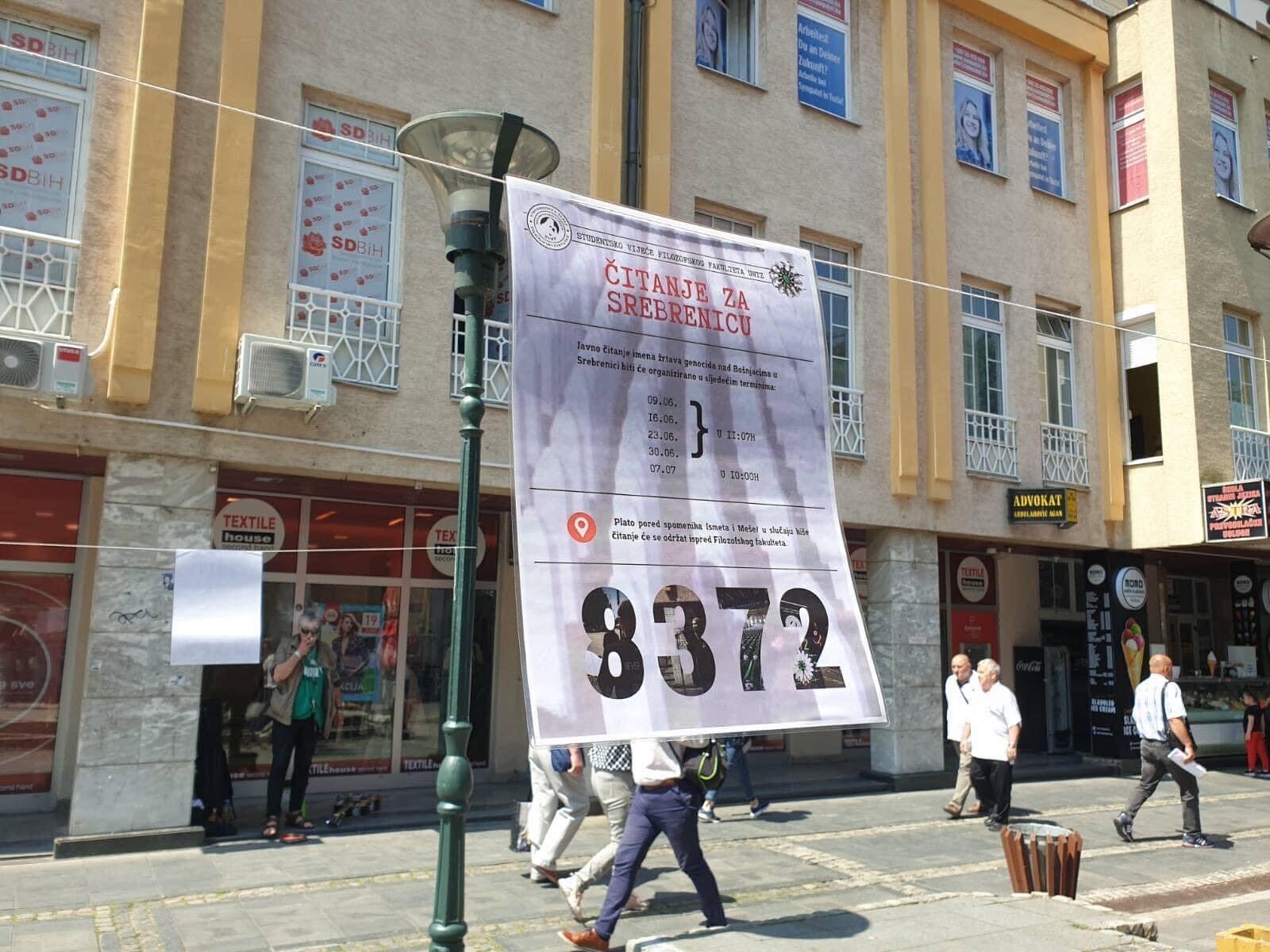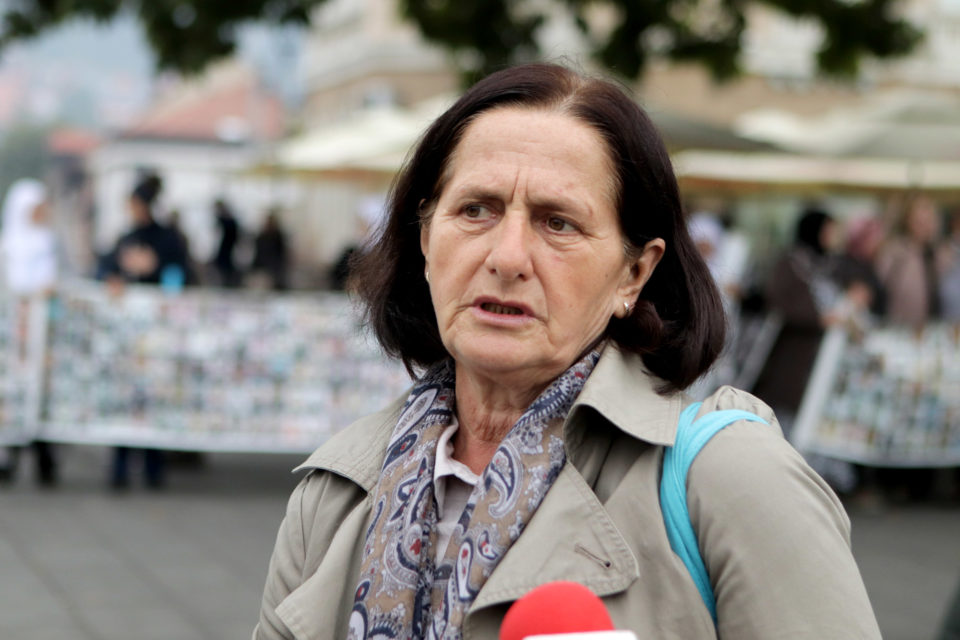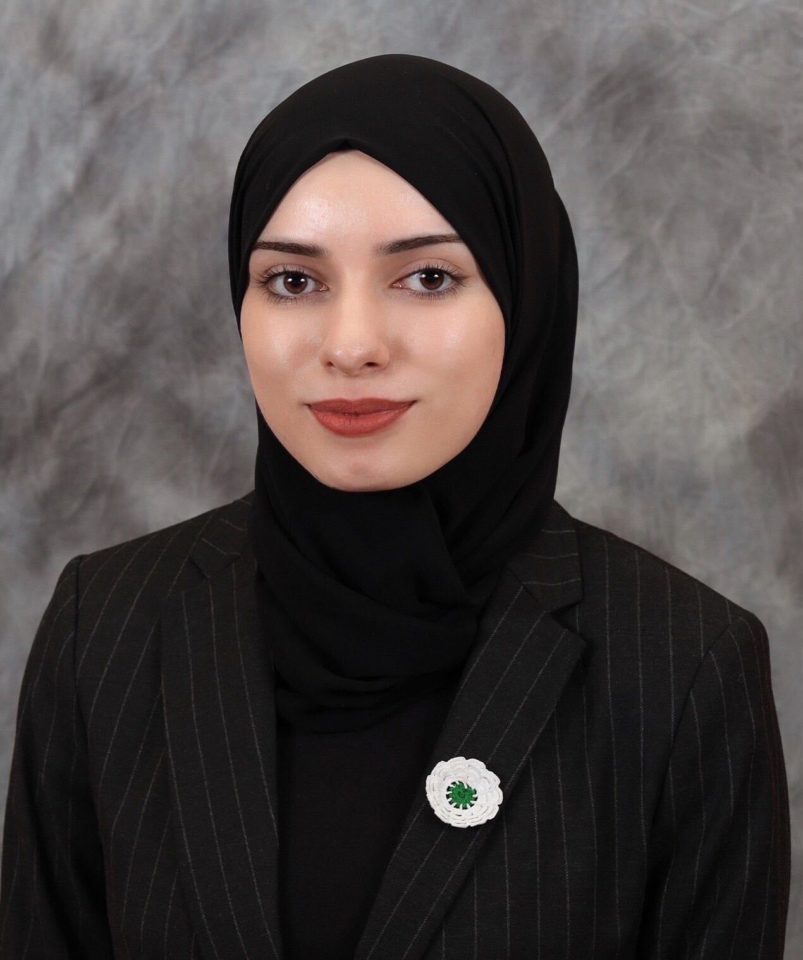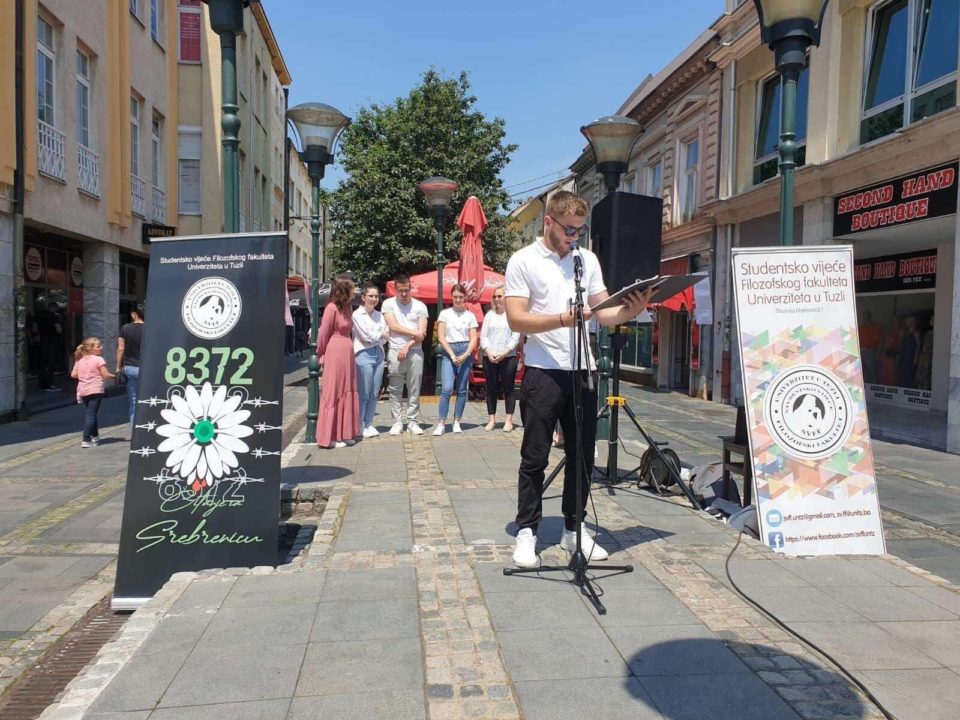
The Srebrenica genocide is commemorated in Tuzla, where many survivors came after the fall of Srebrenica in July 1995. The commemoration features demonstrations demanding justice and emphasizing the importance of remembrance, a commemorative march, a recitation of the names of the genocide victims, and various other cultural activities and events. The message of the commemoration is clear: “We don’t hate, but we will never forget.”
Nura Begović, president of the Women of Srebrenica Association, lost 18 members of her immediate family in the genocide. The process of locating and identifying the remains of her relatives brought renewed pain, but also relief. Her loved ones who were killed in the genocide have all been laid to rest in the Srebrenica Memorial Center Cemetery in Potočari, with the exception of her aunt, whose remains have not yet been found. Many of her relatives’ remains were found only in part, with the remains of her brother being the least complete.

“Not knowing where the remains of your loved ones are hurts the most. But when you find the remains, only then do you see the true extent of the crime. Only then do you understand what they did to your loved ones,” Begović said.
Regarding the 28th anniversary of the Srebrenica genocide, she says that the persistence of genocide denial is very painful.
“You lose everyone in the genocide and then someone says the genocide never happened. It’s very painful and it hurts. It’s like I had never had anyone,” said Begović.
On the 11th of every month, the Women of Srebrenica hold a demonstration in Tuzla to ensure the genocide is never forgotten as well as to demand justice.
“We demand that those who did this be punished, that they are held accountable. Not everyone is guilty. The perpetrators have names,” she said, highlighting the importance of finding and identifying perpetrators.
She emphasized that they don’t harbor hatred toward anyone, but they will never forget what happened. “When they deny genocide, they also deny the existence of our loved ones. Who took them from us?” Begović asked.
The students of the Philosophy Faculty of the University of Tuzla also commemorate the genocide. For the third year in a row, the Student Council is organizing a public reading of the names of the genocide victims in Tuzla’s Sloboda Square.
“With this, we want to encourage deeper reflection on everything that happened and thus by the reading, to give a voice to each of the victims and make them visible in that way,” said Amina Hodžić, President of the Assembly of the Student Council of the Philosophy Faculty at the University of Tuzla.

This is all done with the aim of cultivating a culture of memory. However, the biggest challenge is that on the other side, there is a different memory culture in which war criminals are celebrated.
“It is devastating that young people cultivate and nurture this culture. Things like this and this action must serve as an inspiration to us and show what is right and what is true and just, because the world depends on us,” concluded Hodžić.
The culture of memory surrounding the Srebrenica genocide is nurtured through a variety of activities, especially in the cultural sphere. One such activity is “Days of Remembrance of the Srebrenica Genocide, an event which the Bosnian Cultural Center of Tuzla Canton (BKC TK) is organizing for the second consecutive year.

“The program consists of three book promotions and an exhibition of the judicial verdicts. At the end of the program, on July 10th, there is a symbolic march called ‘Peaceful March for Srebrenica 8,372,’ where the citizens of Tuzla take a symbolic 8,372 step march from the BKC TK to the Square of Srebrenica Genocide Victims,” explained Nedim Ćudić, an expert associate for public relations of the public institution BKC TK.
All of these events seek to cultivate a culture of memory and encourage forgiveness as well as continual remembrance. There is no hatred, but only hope that the remains of the missing will be found and buried, in order to give the surviving relatives of victims a place to pray and remember their loved ones. Throughout the year, and on July 11th especially, Begović repeats this prayer for Srebrenica: “We pray to almighty God. May grievance become hope. May revenge become justice. May mothers’ tears become prayers. May Srebrenica never happen again.”






